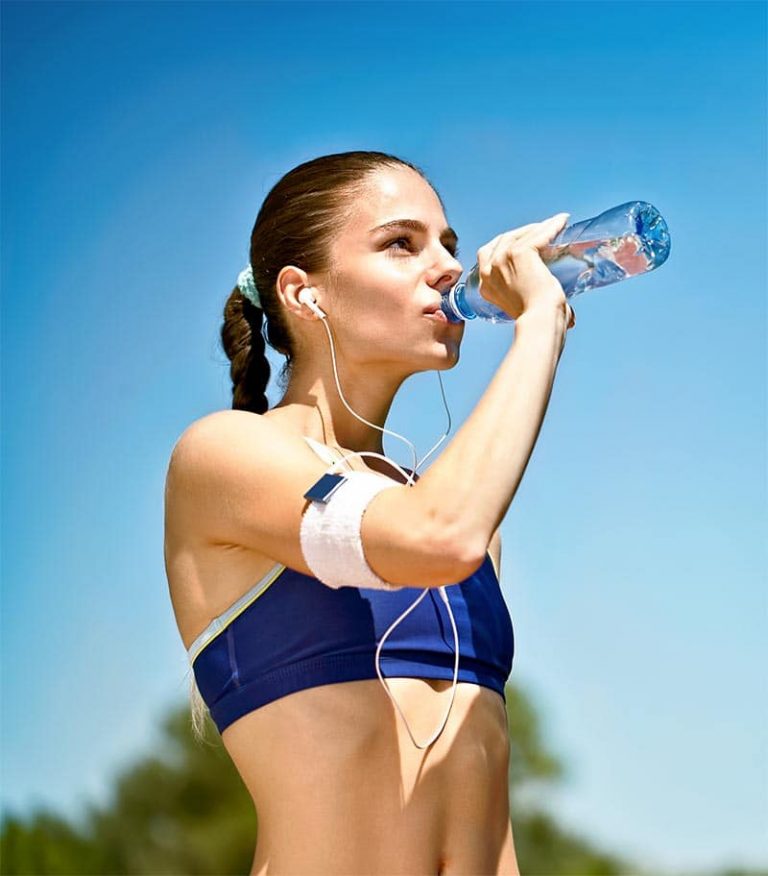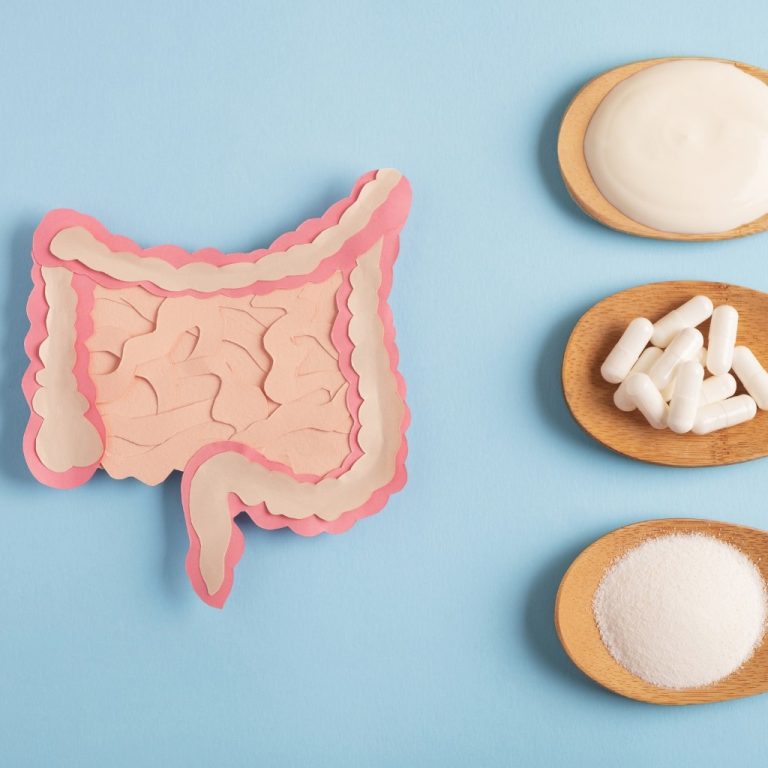With rising temperatures, we also begin shedding layers of clothes. This means we can no longer hide our newly acquired “energy reserves”. If you want to shape and tighten your body, then regular strength and endurance training are both essential. Running, swimming, and biking all tap into fat deposits and strengthen the entire body. The digestive process is stimulated, the immune system is strengthened.
Reach your ideal weight with sport
In spring and summer the treadmill at the fitness studio can once again be replaced by fresh air and running routes along forest or meadow paths. Furthermore, make sure to include as much sport and physical activity in your day as possible: Take long walks with the dog, use the bike to drive to work, or plan an active holiday. When it comes to strengthening muscles and improving body coordination, trend sports such as slacklining, stand up paddle boarding (SUP), or CrossFit are highly recommendable.
The more muscles you build up, the more calories you will burn. Muscles increase the basal metabolic rate and the number of calories needed to maintain our organs. Furthermore, even in an idle state they can cancel out plenty of nutritional energy.

When, how, and what should I eat?
In magazines, you’ll read about miraculous cleanses and lightning fast diets. However, such short-term and drastic diet adjustments often lead to little more than the dreaded yo-yo effect: You lose a little weight, but two weeks after the diet has ended you end up weighing more than to begin with. Studies have shown that true fasting is the most efficient method when it comes to losing weight. A realistic and bearable form of fasting is the so called 16:8 intermittent or part-time fasting. It entails an 8-hour period where one eats normal amounts of healthy food. This is followed by a 16-hour fasting period. This has a positive effect on the body’s insulin levels. Constantly eating throughout the day is particularly bad as it leads to insulin levels which are constantly elevated. Subsequently, this means an increased risk for obesity, diabetes, and other diseases. A 16-hour fasting period provides cells with valuable regeneration time. However, longer fasting periods should only occur under medical supervision.
In the warm seasons a wider range of local fruit becomes available again. Increase your daily intake of fresh berries, crisp lettuce, and similar fruit and veg. Also, resort to wholegrain products and (pseudo-) grains such as quinoa, bulgur, or couscous. These not only contain lots of fibre, they also contain high-quality protein. Oily sea fish (such as tuna, mackerel, sardine) is packed with omega-3 fatty acids which are essential for a healthy body. Furthermore, rapeseed oil, linseed oil, walnut oil, and seaweed are all known to be real omega-3 bombshells. For example, you could enjoy a juicy tuna steak on a bed of rocket and tomatoes, sprinkled with pine nuts. Vegetarians can treat themselves to a multi-coloured quinoa salad with lots of vegetables and garnished with an herb and linseed oil dressing.
Cold, clear water
Ignore all the soft drinks and sweet smoothies; instead make sure you always have the most trendy spring and summer accessory close at hand: a big water bottle. When outdoor temperatures are high make sure to drink at least 2.5 litres of water per day; even more if you are physically active. The body of an average adult is 70% water and roughly 2.5 litres of water are lost via the skin on a daily basis. The liquids we drink resupply around 1.5 to 2 litres and the rest comes from our solid foods. In principle, make sure to always keep your body’s fluid requirements in mind and to automatically drink more when engaging in physical exercise. A rigid drink schedule isn’t necessary, just like it’s not advisable to overhydrate the body either. It’s important to not wait till one feels very thirsty, as thirst is a sign that the body is already suffering from a fluid deficit.
Leave me in peace hay fever!
Spring and summer also have their negative sides for a substantial number of “chosen ones”: Sneezing, itching, stinging eyes, and other unpleasant symptoms torment allergy sufferers during pollen season. Everyday activities like using the stairs or housekeeping can seem just as tiring as running a marathon. Allergies develop when the body’s mucous membranes are damaged. Substances which gain access to the body via the air confuse the immune defences and are mistakenly identified as allergens. As soon as the immune system begins producing antibodies, the complaints begin.
Preventative measures such as pollen screens in windows can help to prevent allergy-triggering substances from entering one’s apartment. Clothes which were worn outside shouldn’t be hung up in the bedroom and it’s also best to wash one’s hair daily. These simple measures will lead to a noticeable relief during the night. Optimally, you should begin strengthening your immune system as efficiently and as early as possible. This should be done by intervening directly at the site at which most immune cells are located – namely the gut. Special probiotics with immune strengthening bacterial strains and therapeutics which rebuild the gut mucosa are a sustainable alternative to pharmaceuticals which do nothing but fight off symptoms (e.g. antihistamines). And next year make sure to already start with the intake of probiotics on the first of January. Because a strengthened gut is the best protection against allergies.



























